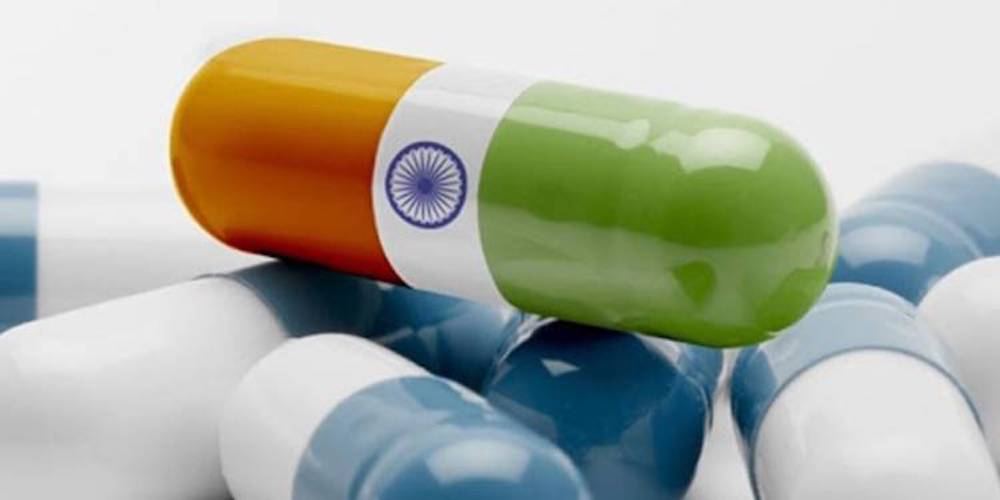Promoting India’s Pharmaceutical Industry

Striving to improve the infrastructural facilities of the pharma sector in the country towards making India a global leader in the sector, the Department of Pharmaceuticals has taken many empowering measures in recent times.
The Department has recently issued the guidelines of the scheme “Strengthening of Pharmaceutical Industry (SPI) with the following objectives:
– To strengthen the existing infrastructure facilities in order to make India a global leader in the Pharma Sector by providing Financial assistance to pharma clusters for creation of Common Facilities.
– To upgrade the production facilities of SMEs and MSMEs, to meet national and international regulatory standards, by providing interest subvention or capital subsidy on their capital loans.
– To promote knowledge and awareness about the Pharmaceutical and Medical Devices Industry by taking up studies, building databases and bringing industry leaders, academia and policy makers together to share their knowledge and experience.
The total financial outlay of the scheme is Rs.500 crore for a period of five years from 2021-22 to 2025-26.
The underlying rationale is to promote and develop the indigenously manufactured drugs and medicines and to give fillip to indigenous manufacturing.
It may be noted that the Indian Pharmaceutical industry is the 3rd largest in the world by volume.
India exported pharmaceuticals worth Rs. 1,80,551 crore in the financial year 2020-21. India exported Bulk Drugs/ Drug Intermediates worth Rs.32,857 crore in the financial year 2020-21.
As it is, in order to make the country “Atmanirbhar” (self-reliant) in pharmaceuticals, the Department of Pharmaceuticals has launched the Production Linked Incentive (PLI) Scheme for promotion of domestic manufacturing of critical Key Starting Materials (KSMs)/ Drug Intermediates (DIs) and Active Pharmaceutical Ingredients (APIs) in India.
The total financial outlay of the scheme is Rs. 6,940 crore and the tenure from FY 2020-2021 to FY 2029-30. 49 projects with investment of Rs. 3685.38 crore have already been approved.
Another Production Linked Incentive Scheme for Pharmaceuticals has been launched with total financial outlay of Rs. 15,000 crore and tenure from FY 2020- 2021 to FY 2028-29. The scheme intends to enhance India’s manufacturing capabilities by increasing investment and production in the sector and contributing to product diversification to high value goods in the pharmaceutical sector.
Approval has been granted to 55 companies under this scheme. The eligible drugs under this scheme include APIs among other categories of pharmaceutical products.
The Department has also launched a scheme to provide further support to API pharma companies through providing financial assistance to the States for establishing three Bulk Drug Parks.
Further, the Department provides support to the pharma clusters for creating common infrastructure facilities under Assistance to Pharmaceutical Industry for Common Facilities (API-CF).
Pharmaceutical Technology Upgradation Assistance Scheme (PTUAS) has also been approved to support SME units in the pharmaceutical sector for quality and technology upgradation.
It may be noted that over the last 2 decades, the pharmaceutical industry has taken significant strides in improving public healthcare in India as well as around the world. With the onset of the COVID-19 pandemic, the industry was quick to mobilise its resources to take care of the supply chain disruptions despite the imposition of lockdowns and restrictions across the country. It emerged as a reliable partner, ensuring an efficient supply of essential medicines to all the partner countries with a quick turnaround time in manufacturing repurposed drugs like Remdesivir, hydroxychloroquine and Favipiravir. It also invested heavily in R&D screening, treatment and prevention of COVID-19 with the launch of indigenous testing kits, treatments, and vaccines.
“The momentum gained over the past few years has sent positive signals with regard to the Indian pharmaceutical industry’s resilience, commitment, adaptability, and untapped potential” , says Nikkhil Masurkar, Executive Director, ENTOD Pharmaceuticals.
Masurkar recounts how the journey of the Indian pharmaceutical industry has been long starting before 1970 when the pharma market was dominated by foreign companies. However, with the introduction of the Indian Patents Act in 1970 and Drug Policy in 1978, a new generation of entrepreneurs and scientists leveraged the opportunities provided by these regulations to build an industry that proudly boasts of it as the “pharmacy of the world”.
From 1970 to 1990, the Indian pharmaceutical industry witnessed the entry of different domestic manufacturers into the market. With the introduction of the 2005 Patents (Amendment) Act, the Indian pharmaceutical industry ushered in a new era that encouraged foreign pharmaceutical companies to venture into the country. This promoted healthy competition and also encouraged Indian pharmaceutical companies to invest in R&D and innovation with few companies developing their own new molecules, while others entered into joint R&D ventures with foreign pharma companies.
Today, the Indian pharmaceutical industry accounts for 60% of global vaccine production and contributes 40% to 70% of the World Health Organisation (WHO) demand for diphtheria, tetanus, and pertussis as well as Bacillus Calmette–Guerin vaccines.
The person disease burden in the country measured as Disability Adjusted Life Years (DALYs) dropped by 36% between 1990 and 2016 and during the same period drug penetration increased by 50% in India. This can be attributed to increased access to affordable drugs. India also delivers 90% of the WHO’s demand for the measles vaccine.
Furthermore, due to strong collaboration between pharmaceutical manufacturers, healthcare providers and the government, India has now been declared Polio-free.
Today the Indian pharma industry has turned into a global leader with Indian companies responsible for approximately 40% of all generics consumed in the US and 25% of all medicines supplied to the United Kingdom are manufactured in India. Additionally, India supplies 2/3rd of antiretroviral drugs worldwide, contributing to the international fight against AIDS.



